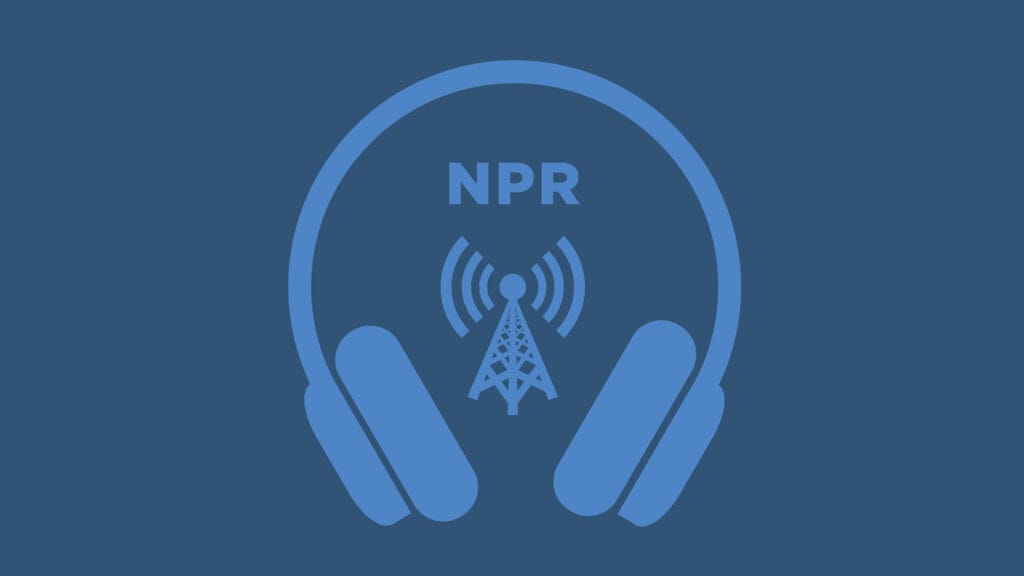Credit recovery programs help high school students that have failed courses graduate. Advocates say it prevents students from dropping out while critics say it lowers standards.
ARI SHAPIRO, HOST:
U.S. high schools are graduating a higher percentage of students than ever before, and educators view the trend as a success. Some students are getting there with the help of credit recovery programs which let them retake courses they failed the first time. Advocates say it’s a way to keep kids from dropping out, but critics say it could be lowering standards. Suzanne Perez of member station KMUW in Wichita, Kansas, has this report.
(SOUNDBITE OF SONG, “POMP AND CIRCUMSTANCE MARCH NO. 1”)
SUZANNE PEREZ, BYLINE: On a summer evening at Heights High School in Wichita, students in caps and gowns file into the auditorium for one last commencement ceremony.
UNIDENTIFIED PERSON: Congratulations, class of 2025.
(APPLAUSE)
PEREZ: It’s more than a month after most high schools have finished their graduation events, but the students crossing the stage this evening needed extra time to finish the coursework required for a high school diploma. Jessica Ross ended her senior year lacking several key credits in English, math and science.
JESSICA ROSS: It was pretty tough. But there was days I wanted to give up, but I told myself not to give up.
PEREZ: Jessica enrolled in a district initiative called Within Reach, and within a few weeks, she completed assignments and got the credits she needed to graduate. Others at this delayed commencement made up classes during a three-week summer program.
ROSS: Well, I wanted to make my mom proud and make my family proud.
PEREZ: Across the country, schools have broadened the ways in which students who fall behind can get back on track for graduation, often without repeating a whole semester or year of school. Credit recovery options range from computer labs in classrooms to after-school programs in office buildings or shopping malls. Wichita superintendent Kelly Bielefeld says some students would drop out without a viable path to recover credits.
KELLY BIELEFELD: Life happens for our kids. Life happens, and so you might have a semester that doesn’t go well for whatever reason – some family issues, some – you know, you’re working a lot, whatever. There’s all sorts of reasons why. And so to give a student a second chance.
PEREZ: Studies show that more than two-thirds of public high schools offer some type of credit recovery, and the number has likely grown following the COVID pandemic. The incentive for districts is pretty simple – the more students who graduate on time, the higher that school’s graduation rate. And graduation rates, like test scores, are a key measure of educational progress.
NAT MALKUS: No one wants kids to not graduate. The trick with credit recovery is helping kids who are already behind to catch up and to do it without watering down expectations.
PEREZ: That’s Nat Malkus, deputy director of education policy at the American Enterprise Institute. He says credit recovery done well can get students back on track without sacrificing standards. What’s troubling, he says, is when students complete a semester of work in a matter of weeks or even days.
MALKUS: This is the hardest work in education – catching up students who have already fallen behind, and doing it quickly. And we need to treat it as such rather than putting together programs of study or online courses that are shortcuts.
PEREZ: It’s hard to know how many students enroll in credit recovery or how effective it is because policies vary widely by state and school district. UCLA researcher Jordan Rickles says the pandemic increased the demand for programs to help students graduate.
JORDAN RICKLES: So there’s a proliferation of need out there for credit recovery and kind of an absence of evidence about what works.
PEREZ: In a recent study, Rickles compared computer-based programs with teacher-directed ones and found little difference in student outcomes. He says there’s no question credit recovery has helped schools boost their graduation rates. But that’s not a bad thing when you consider the alternative.
RICKLES: What would that student’s high school experience look like if there was no credit recovery? I don’t think it would be better. Just keeping students enrolled in school and making some progress should be considered at least part of a win.
PEREZ: Bielefeld, Wichita’s superintendent, says it’s vital that schools offer alternate pathways to graduation and not punish students who make mistakes. In the end, he says, the students have to do the work.
BIELEFELD: We are not giving out diplomas. These kids are working hard to earn diplomas.
PEREZ: The U.S. Department of Education is expected to release new data in coming months that will show how many schools offer credit recovery and how many students are enrolled in it.
For NPR News, I’m Suzanne Perez in Wichita.
Copyright © 2025 NPR. All rights reserved. Visit our website terms of use and permissions pages at www.npr.org for further information.
Accuracy and availability of NPR transcripts may vary. Transcript text may be revised to correct errors or match updates to audio. Audio on npr.org may be edited after its original broadcast or publication. The authoritative record of NPR’s programming is the audio record.
Suzanne Perez 2025-08-27 22:15:20
Source link

